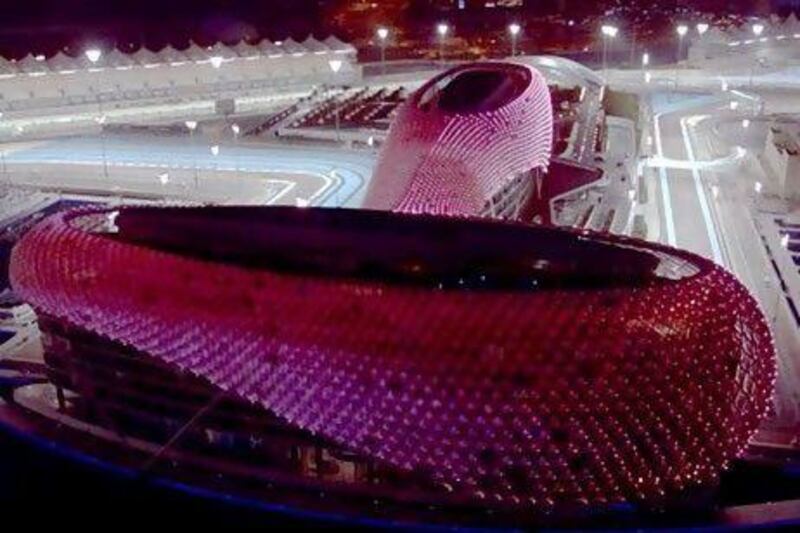DHL, the global logistics giant, has made a habit of putting together glitzy television advertising campaigns with a speeding streak of yellow.
Now the company has turned to the UAE with a 30-second advertisement that takes in the glamour of the Abu Dhabi Grand Prix at Yas Island and the grandeur of the Burj Khalifa in Dubai.
All this is tied together with the speeding DHL sign, that seems to streak across the television screen as quickly as a Formula One racing car.
"The UAE and the Middle East [are one of our] fastest-growing markets," said Frank-Uwe Ungerer, the head of DHL in the UAE.
"Dubai is a strategic location and we have a lot of attention from the board."
Filmed on location in the Emirates, the German company's second advertisement campaign, branded as "International Specialist", is a reminder of the service provider's expertise in express delivery.
It also comes at a time when DHL is hoping to set up a fourth mega-operations hub in Asia in Shanghai as the economy slows in Europe and the United States.
"We have seen a second year of strong, double-digit growth," said Mr Ungerer, referring to the 15 per cent increase in revenues during the first quarter in the Middle East and North Africa (Mena) compared to the same period last year.
Globally, DHL revenues jumped by 4.3 per cent in the first three months compared with the same quarter last year, hitting €13.4 billion (Dh61.95bn).
Part of that success has been the high-profile sponsorship of Formula One, which is extremely popular in the Middle East.
Even so, the company is unlikely to add a third logistics hub in the region to operate alongside Dubai, which services 220 flights daily and employs 850 staff, and Bahrain.
"The effectiveness [of the advertisement] comes from implanting into the mind of their potential customers the one attribute most care about: speed of delivery on a global scale," said Detlev Zwick, a visiting faculty member at the SP Jain School of Global Management in Dubai.
And global sporting brands such as Grand Prix racing, the English Premier football League and the Olympics help to promote that concept.
"These events are where your customers are and they resonate with them," said Mr Zwick.
Formula One will grab the spotlight in the Emirates during the Abu Dhabi Grand Prix in November.
Already more than 70 per cent of the tickets have been sold before the drivers Sebastian Vettel, Jenson Button, Lewis Hamilton and Michael Schumacher climb into their high-speed cars at the Yas Marina Circuit.
The event will generate the right sort of buzz for DHL, which has been in the UAE and the Middle East for about 30 years.
Yet there have been speed bumps along the way.
Last year, the company's services in the Middle East were hit during the Arab Spring.
In Egypt, Tunisia, Yemen, Bahrain, Libya, Syria, Algeria and Jordan, shipment volumes were down by more than 11 per cent in the first quarter compared with the same period in 2010.
DHL operates out of 19 countries in the Mena region.
But business has picked up since then. "The Middle East market is the future," said Mr Ungerer.





